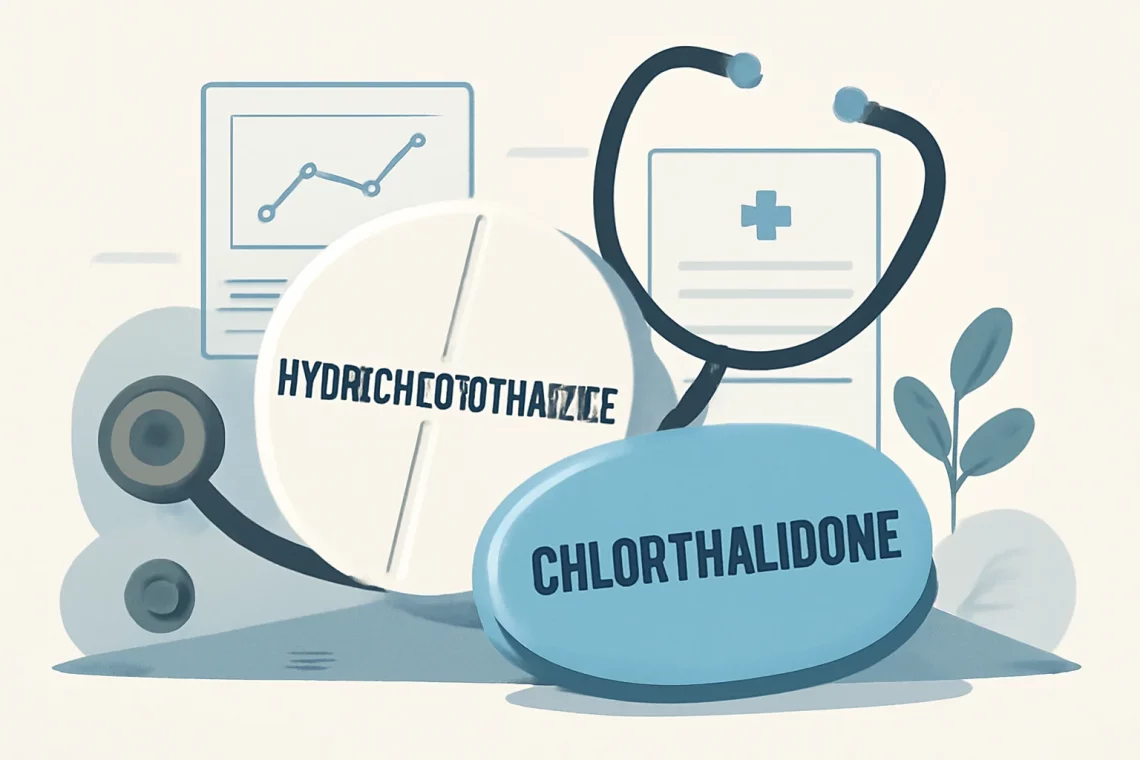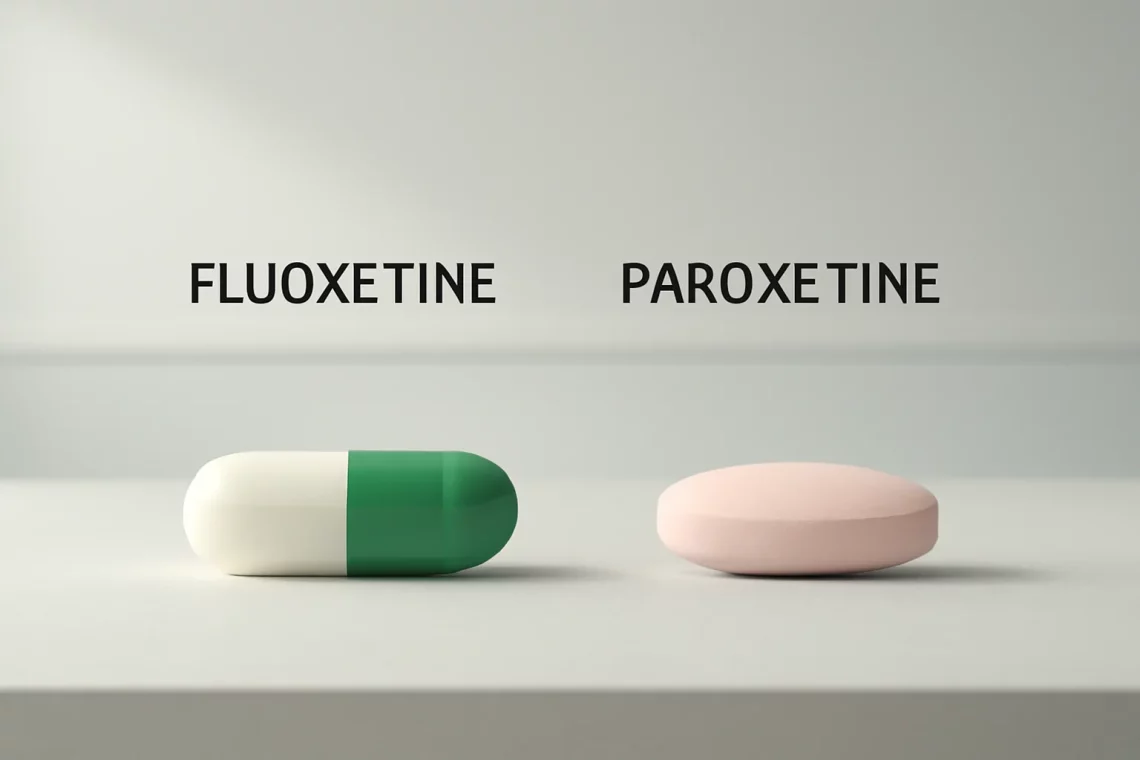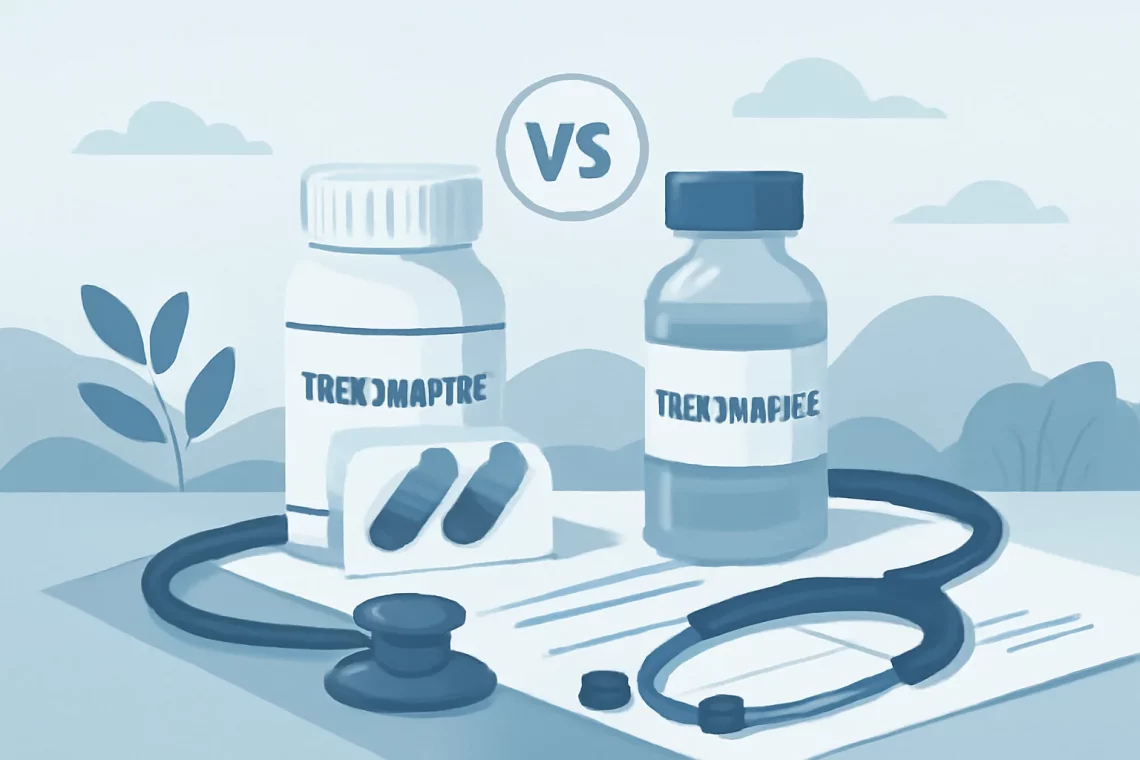-
Tramadol vs Gabapentin: Understanding Their Uses and Differences
Tramadol and gabapentin are two medications commonly used to manage pain and neurological conditions. Both drugs have distinct mechanisms of action and are prescribed for different types of ailments. While tramadol is primarily an opioid analgesic, gabapentin is classified as an anticonvulsant and is frequently used to treat neuropathic pain and seizures. The choice between these two medications can significantly impact a patient’s quality of life, especially when it comes to managing chronic pain or neurological disorders. Understanding the differences between tramadol and gabapentin is crucial for patients and healthcare providers alike. Factors such as efficacy, side effects, and the appropriate use of each medication play a significant role in…
-
Hydrochlorothiazide vs Chlorthalidone: Choosing the Right Diuretic
High blood pressure and fluid retention are common health challenges faced by many individuals. Among the various treatment options available, thiazide diuretics, such as hydrochlorothiazide and chlorthalidone, have gained popularity due to their effectiveness in managing these conditions. Both medications work by promoting the excretion of sodium and water through the kidneys, helping to lower blood pressure and reduce swelling. However, despite their similar uses, these two drugs have distinct properties that can influence their effectiveness, side effects, and suitability for different patients. The choice between hydrochlorothiazide and chlorthalidone often depends on various factors, including the patient’s overall health, the presence of other medical conditions, and individual responses to treatment.…
-
Cymbalta vs Effexor XR: Choosing the Right Antidepressant for You
Cymbalta and Effexor XR are two prominent medications commonly prescribed for various mental health conditions, particularly depression and anxiety disorders. Both belong to a class of drugs known as serotonin-norepinephrine reuptake inhibitors (SNRIs), which function by enhancing the levels of serotonin and norepinephrine in the brain, neurotransmitters that play crucial roles in mood regulation. The growing prevalence of mental health issues has led to an increased focus on effective treatment options, making it essential for patients and healthcare providers to understand the differences and similarities between these two medications. As mental health awareness expands, so does the importance of informed decision-making regarding treatment options. Both Cymbalta and Effexor XR have…
-
Fluoxetine vs Paroxetine: Choosing the Right Antidepressant for You
Fluoxetine and Paroxetine are two widely prescribed medications in the class of selective serotonin reuptake inhibitors (SSRIs). These drugs are primarily used to treat various mental health conditions, including major depressive disorder, anxiety disorders, and obsessive-compulsive disorder. Although they share a similar mechanism of action, their chemical composition, side effects, and uses can differ significantly. As more individuals seek treatment for mental health issues, understanding the nuances between these two medications becomes increasingly important. In recent years, there has been a growing recognition of the significance of mental health, leading to more people seeking help. The stigma around mental health issues is gradually dissipating, prompting discussions about effective treatment options.…
-
Lisinopril vs Ramipril: Which Blood Pressure Medication is Right for You?
High blood pressure, also known as hypertension, is a common condition that affects millions of people worldwide. It is often referred to as a “silent killer” because it may not present any noticeable symptoms until serious complications arise. Managing hypertension is crucial to reducing the risk of heart disease, stroke, and other health issues. Various medications are available to help control blood pressure, and two of the most commonly prescribed classes of these medications are ACE inhibitors. Lisinopril and Ramipril are both effective options within this category, but they have distinct characteristics, benefits, and potential side effects. ACE inhibitors work by relaxing blood vessels, allowing blood to flow more freely,…
-
Terbinafine vs Itraconazole: Which Antifungal Treatment is Better?
Terbinafine and Itraconazole are two antifungal medications commonly used in the treatment of various fungal infections. Fungal infections can range from superficial skin conditions to systemic infections that may affect multiple organ systems. These medications target different types of fungi and have distinct mechanisms of action, making them suitable for different clinical scenarios. When it comes to treating conditions such as athlete’s foot, ringworm, and nail fungus, the choice between Terbinafine and Itraconazole can significantly impact the effectiveness of the treatment. Both drugs are effective, but they differ in their pharmacokinetics, side effects, and specific indications. Understanding the nuances of each medication can empower patients and healthcare providers to make…
-
Terbinafine vs Itraconazole: Choosing the Right Antifungal Treatment
In the realm of antifungal treatments, two names frequently come up: terbinafine and itraconazole. Both medications are utilized to combat a range of fungal infections, yet they operate through different mechanisms and are indicated for varied conditions. As the prevalence of fungal infections continues to rise, understanding the nuances of these treatments becomes increasingly important. Terbinafine, primarily available in oral and topical forms, is known for its ability to effectively treat dermatophyte infections, particularly those affecting the skin and nails. On the other hand, itraconazole belongs to a broader class of antifungals and is effective against a wider variety of fungi, including certain endemic mycoses. The choice between these two…
-
Naproxen vs Advil: Which Pain Reliever Is Right for You?
Naproxen and Advil are two widely used medications that belong to the category of nonsteroidal anti-inflammatory drugs (NSAIDs). Both are effective for relieving pain, reducing inflammation, and lowering fever, making them popular choices for treating a variety of conditions such as headaches, muscle aches, arthritis, and menstrual cramps. While they share similar therapeutic effects, they also have distinct characteristics that differentiate them in terms of their chemical composition, duration of action, and potential side effects. Understanding the differences between Naproxen and Advil can help individuals make informed decisions about which medication may be more suitable for their specific needs. Factors such as the severity of pain, frequency of use, and…
-
Benzonatate vs Robitussin DM: Which Cough Relief is Better?
Benzonatate and Robitussin DM are two popular medications used to alleviate cough symptoms, but they work in different ways and have distinct active ingredients. Understanding their mechanisms, uses, and potential side effects can help individuals make informed choices about which product may be best for their needs. Coughing is a common symptom that can arise from various conditions, including colds, flu, allergies, and respiratory infections. While it serves an essential purpose by clearing mucus and irritants from the airways, a persistent cough can be uncomfortable and disruptive to daily life. The choice between Benzonatate and Robitussin DM often depends on the nature of the cough, any underlying health conditions, and…
-
Doxycycline vs Cipro: Key Differences and Uses Explained
Doxycycline and Ciprofloxacin are both antibiotics that play significant roles in modern medicine. They are effective in treating a variety of bacterial infections, but they belong to different classes of antibiotics and have distinct mechanisms of action. Understanding the differences between these two medications can help both healthcare providers and patients make informed choices regarding treatment options. Doxycycline, a tetracycline antibiotic, is often used to treat infections such as acne, respiratory tract infections, and certain sexually transmitted infections. It works by inhibiting bacterial protein synthesis, thereby preventing the growth and reproduction of bacteria. On the other hand, Ciprofloxacin, a fluoroquinolone antibiotic, is commonly prescribed for urinary tract infections, gastrointestinal infections,…







































